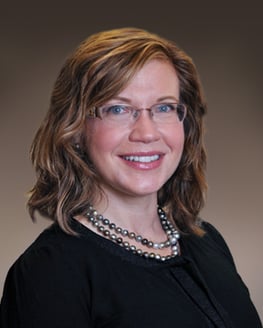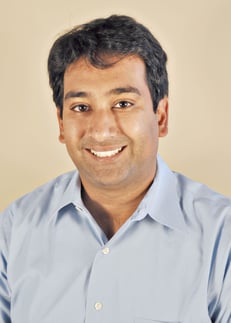While the lure of academic medicine careers often lies in the promise of finding life-saving cures and new medical treatments, many young faculty leave the field in frustration after failing to win grants to fund their research. As a result, the best and brightest recruits are often lost to academic medicine.
But a new study at the University of Colorado Anschutz Medical Campus demonstrates that a program pairing junior faculty members with seasoned mentors can result in significantly more grants.
The study, published recently in the journal Academic Medicine, shows participants in the Clinical Faculty Scholars Program (CFSP) at CU Anschutz won about four times as many grants as those who didn’t take the course.

Dr. Anne Libby, PhD, professor and vice-chair of academic affairs at CU Anschutz.
The innovative, faculty-led program began in 2004 but its impact is just now being studied.
“We are in perhaps the most challenging and competitive period of academic funding in history,” said Anne Libby, PhD, lead author of the study and professor and vice-chair for academic affairs of the Department of Emergency Medicine. “National Institutes of Health budgets have shrunk and there is a critical lack of state funding.”
That means researchers seeking funding must know how to write focused, understandable grant applications and remain persistent in the face of rejection.
“Thousands of junior faculty begin their appointments at academic health centers planning careers that will include externally funded research,” the study said. “Attrition in the early-career faculty ranks indicates that many talented and well-trained clinicians and scientists who seek these careers are not retained by academic health centers in part because of their inability to achieve external funding.”
The two-year CFSP program offers a research mentoring team to five junior faculty selected annually with the goal of teaching them how to win funding. Each scholar gets a primary senior mentor who they meet with regularly to develop targeted research plans. There are also group meetings and sessions with program directors to keep scholars on track.
Study co-author Adit Ginde, MD, MPH, a program alumnus and now co-director of CFSP, said this all happens during an intense time in a researcher’s career.
“There is only a two or three year period to become really successful in this field,” he said. “Without a robust environment and concentrated career mentorship, often very talented people who could or should have successful research careers will not succeed. We provide them the structure to make it through this critical period.”
Ginde, an associate professor of emergency medicine at CU Anschutz, said CFSP shows early professionals how to write grants, find mentors and collaborators and locate the right sponsors.
According to Libby, it’s a level of complexity few researchers have ever been taught.
 Dr. Adit Ginde, MD, MPH, associate professor of emergency medicine at CU Anschutz.
Dr. Adit Ginde, MD, MPH, associate professor of emergency medicine at CU Anschutz.“What you don’t want to happen is see good people working in isolated silos wither on the vine,” she said. “In the world of academic medicine, it’s sink or swim.”
The study shows the program is working.
Researchers looked at the number of grants won by the junior faculty before and after the training and also compared them to those who did not participate in the program.
They found that the mean annual dollars increased significantly for the CFSP participants compared to those who didn’t take the course. Those in the program won an average of $83,427 a year in grants vs. $27,343 for those who didn’t take part. They also wrote more grants as well.
“They are in there applying. They learn to understand rejection. In fact, we normalize rejection,” Libby said. “I tell them rejection is a rite of passage and if they aren’t getting rejected they aren’t submitting enough grants.”
She said the program is a proven and financially sustainable way to enhance the grant productivity of young faculty, especially important now as more and more senior faculty are set to retire.
“We have shown that with the right resources junior faculty from a wide range of disciplines can be trained for extramural grant success and that the resulting productivity is observable on average after one year of this training and grows over time,” the study said.
Ginde noted that the program taught him the value of persistence and collaboration in his own career as a clinical researcher.
“And it is now seen as the flagship research career development program on our campus,” he said.
The study co-authors include Patrick Hosokawa, MS, Diane Fairclough, DrPH, Allan Prochazka, MD and Pamela Jones, PhD, all of the University of Colorado Anschutz Medical Campus.
###
